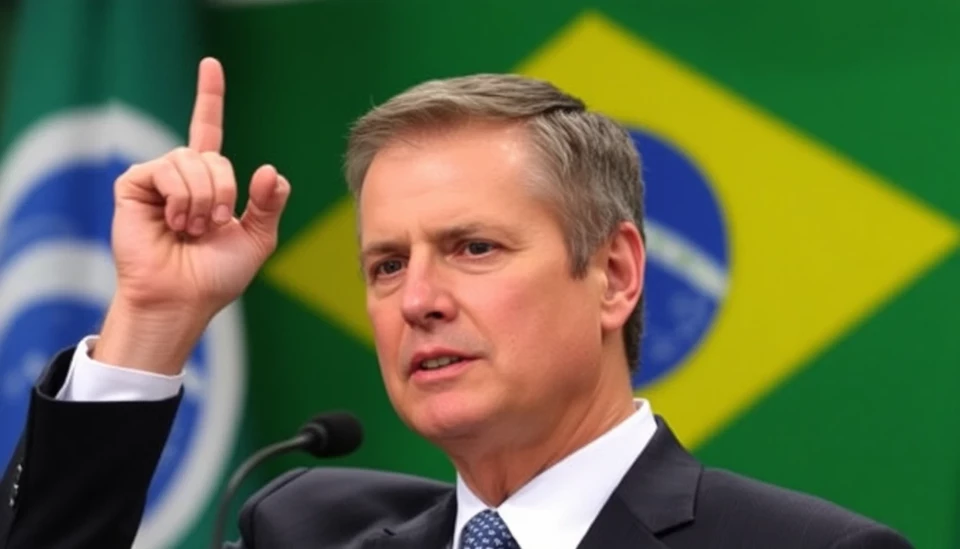
In a dynamic shift in fiscal policy, Brazil is poised to accelerate its interest rate hikes, with the central bank preparing to double the pace from the previously established schedule. This aggressive adjustment comes in response to soaring inflation rates that have triggered economic instability and raised concerns among financial experts and the public alike.
The decision, which marks a pivotal moment for Brazil's monetary policy, was announced against a backdrop of mounting inflationary pressures exacerbated by global economic fluctuations and local challenges. Analysts suggest that this rapid increase in interest rates is aimed at curbing rampant inflation, which has been a significant issue affecting the purchasing power of Brazilian consumers.
Central bank officials indicated that they are responding to inflationary signals that have continued to rise above target levels. The anticipated increase in interest rates is expected to deter consumer spending and borrowing, thereby seeking to stabilize prices. While many economic analysts praise the central bank’s decisiveness, there are concerns about the potential for a recession if interest rates rise too quickly.
Moreover, the Brazilian government's ongoing struggles with fiscal deficits and external debts further complicate the economic landscape. As the central bank prepares to implement this new policy, it is vital for investors and stakeholders to closely monitor the implications on domestic markets, loans, and overall economic growth.
Experts warn that while higher interest rates may help in the fight against inflation, the likelihood of discouraging investment and slowing down economic growth cannot be ignored. Small business owners and working-class citizens could face significant challenges if borrowing becomes more expensive, leading to potential layoffs or business closures.
Furthermore, previous rounds of interest rate hikes have had mixed results; while some sectors have shown resilience, others have felt the pinch of reduced consumer spending. As Brazil stands at this economic crossroads, the central bank’s next moves will be critical in determining the nation's financial health in the coming months.
In conclusion, Brazil’s decision to double its pace of interest rate hikes illustrates a proactive approach in tackling the nation's inflation crisis. As the government and economic policymakers navigate these turbulent waters, the impact of their strategies will be scrutinized, as stakeholders and citizens alike seek stability and growth in an uncertain economic climate.
#Brazil #InterestRates #EconomicPolicy #Inflation #Finance #CentralBank #Investment #EconomicGrowth
Author: Rachel Greene




